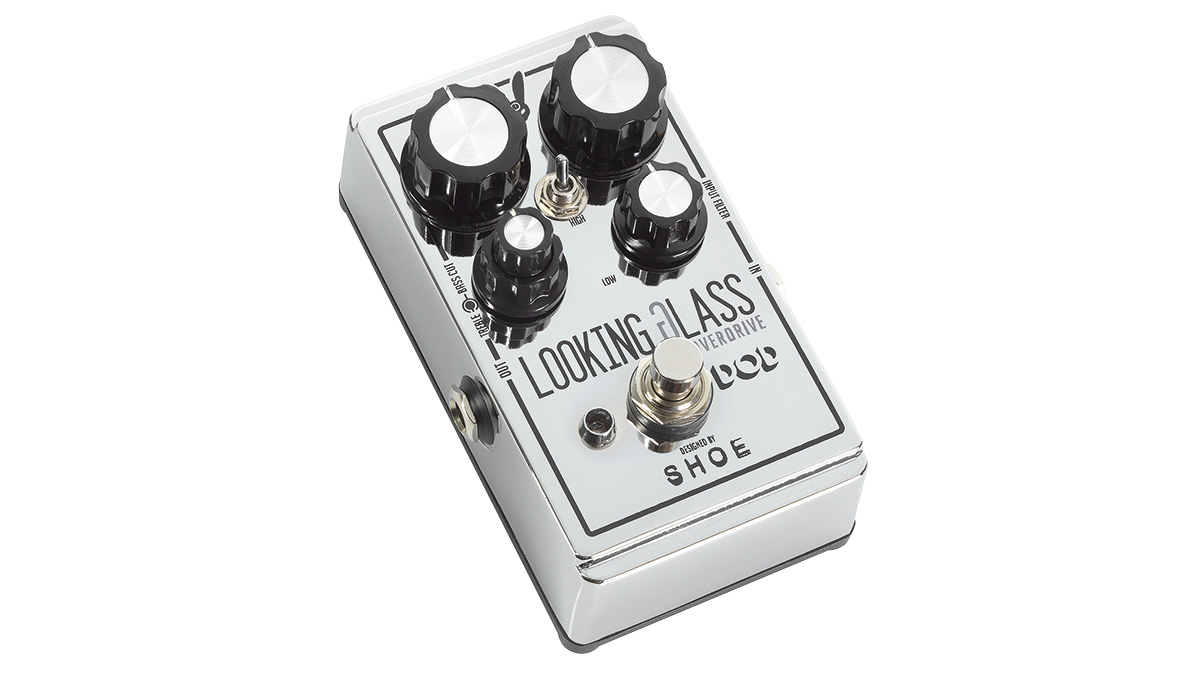MusicRadar Verdict
Clever controls for adjusting to any guitar plus a wide gain range equals incredible flexibility.
Pros
- +
Fantastic sounds.
Cons
- -
Very few.
MusicRadar's got your back
A collaboration between DOD and Shoe Pedals, the Looking Glass features high-and low-gain modes and has well-thought-out EQ facilities to make it work with a wide range of guitars/pickups.
Key to this is the Input Filter knob (aided by two internal DIP switches), which sets the guitar/pedal interfacing just right and can subtly smooth off unwanted ice-pick-y edge.
Also useful in the signal chain before you hit the overdrive is the Bass Cut, which shapes the bottom end and is great for tightening things up and taking some of the flab out of humbuckers.
On the low-gain setting, there are transparent clean boosts and sweet low-level overdrive. Flick the switch and take it a stage further to full-on valve amp drive with a hint of fuzz. It's naturally responsive at all times, and with the treble knob to get the output just right for your amp, we swear you can't dial in a bad sound with this pedal.
Want all the hottest music and gear news, reviews, deals, features and more, direct to your inbox? Sign up here.
Trevor Curwen has played guitar for several decades – he's also mimed it on the UK's Top of the Pops. Much of his working life, though, has been spent behind the mixing desk, during which time he has built up a solid collection of the guitars, amps and pedals needed to cover just about any studio session. He writes pedal reviews for Guitarist and has contributed to Total Guitar, MusicRadar and Future Music among others.

